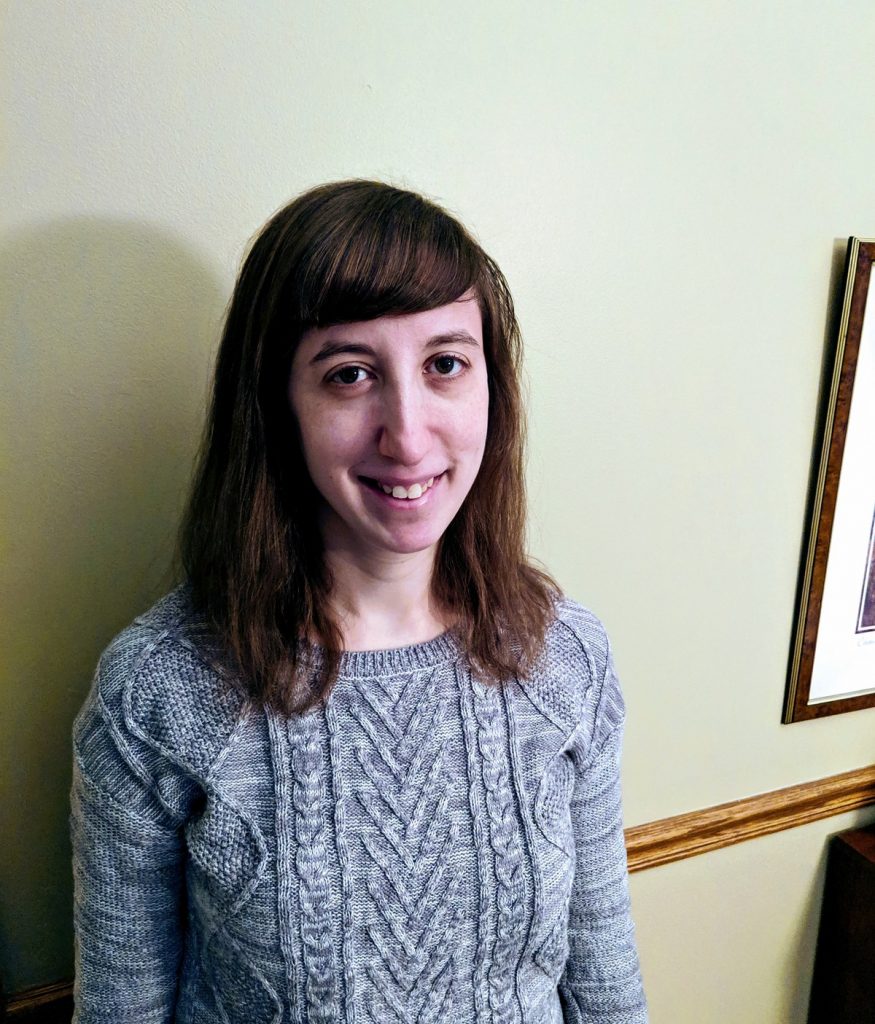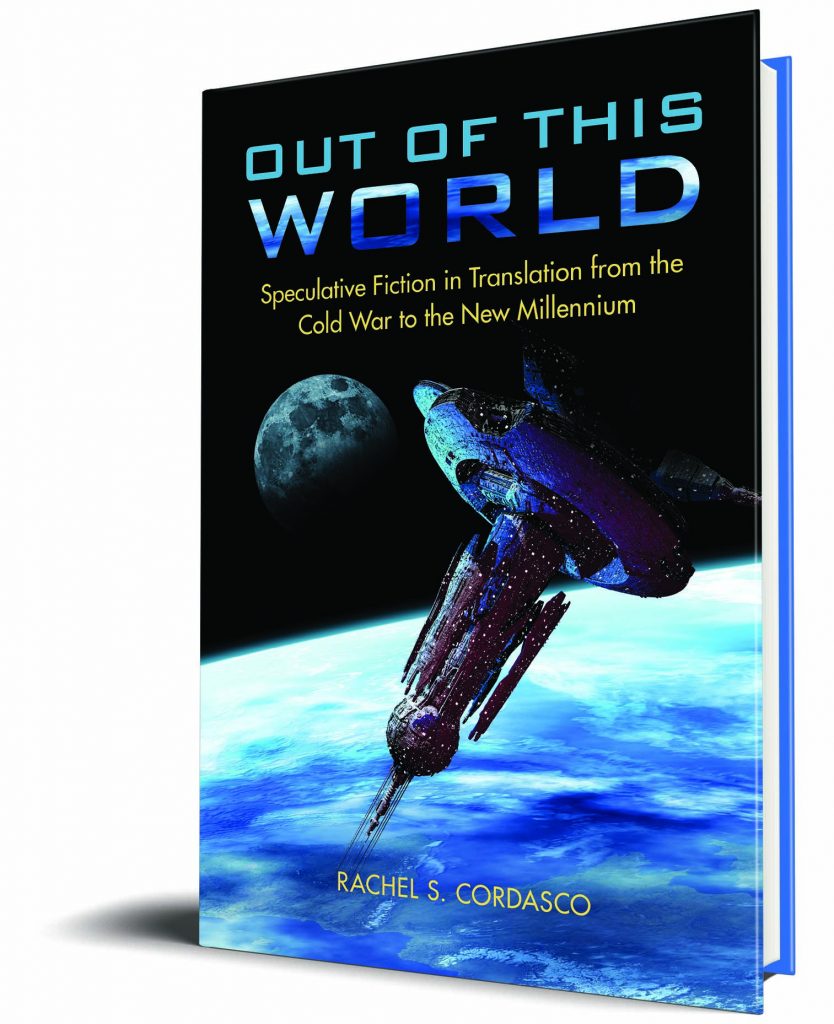Rachel S. Cordasco, author of Out of This World: Speculative Fiction in Translation from the Cold War to the New Millennium, answers questions on her scholarly influences, discoveries, and reader takeaways from her book.
Q: Why did you decide to write this book?
After tracking speculative fiction in translation for several years, I thought it would be useful to gather some of this information into a reference text. This way, teachers and scholars could more easily organize courses on SFT and pursue their own scholarship, thus expanding our knowledge of this important corner of the genre.
Q: Who were your biggest influences?
My 9th grade English teacher, Michael Bruner, and my grad school advisor, David Zimmerman. Both taught me the value of writing clear, concise prose and making logical arguments. They did this through kind but firm instruction, which I truly value. In terms of SFT influences, those would have to be John DeNardo, Cheryl Morgan, Lavie Tidhar, and Francesco Verso, who introduced me to the world of SFT and inspired me to spread the word about these texts to Anglophone readers eager for new literary perspectives.
Q: What is the most interesting discovery you made while researching and writing your book?
When I started doing research for this book, I was stunned by just how much SFT was already out there. Thanks to sites like the ISFDB site and John Clute’s Encyclopedia of Science Fiction, I discovered entire constellations of authors and texts that I hadn’t yet encountered, including a whole group of French science fiction writers who were published in English in the 1970s. I also learned just how wonderfully varied SFT truly is—for instance, while Japanese SFT tends toward hard science fiction and horror, Finnish SFT leans more toward eco-fantasy and the Weird.

Q: What myths do you hope your book will dispel or what do you hope your book will help readers unlearn?
My goal with this book is to show both lay readers and scholars that SFT is varied and constantly growing. As speculative fiction becomes more popular around the world, it is increasingly being written in languages other than English. And thanks to talented and dedicated translators, Anglophone readers can have access to both old and new speculative fiction.
Q: What is the most important idea you hope readers will take away from your book?
I hope readers learn that speculative fiction is being written and translated worldwide, with the Anglophone market being just one part of a much larger publishing constellation.
Q: What do you like to read/watch/or listen to for fun?
I love reading SFT and watching science fiction series (both new and old). Star Trek TNG is one of my favorite shows, especially because of the incomparable Jean-Luc Picard and the many literary references! Other things I enjoy: crocheting; listening to opera, blues, 60s rock, and French and Italian café music; and eating chocolate.

